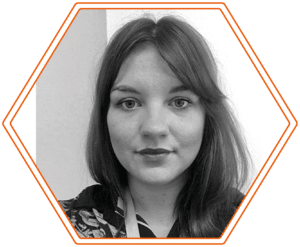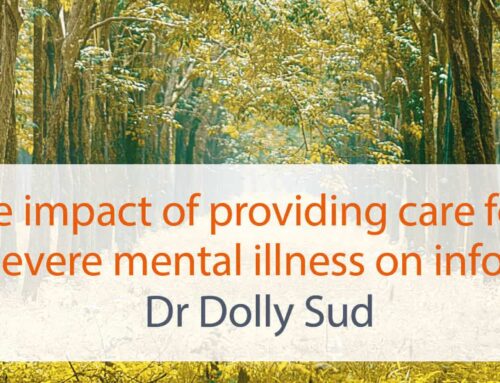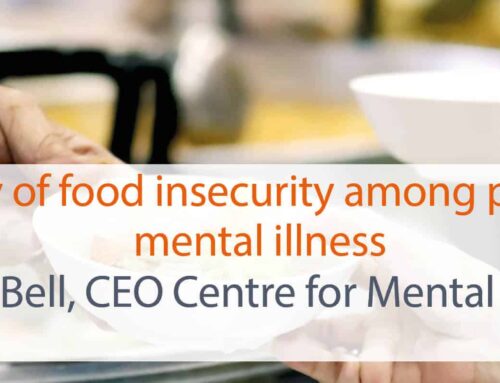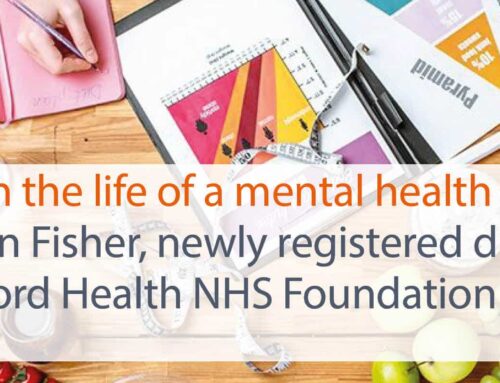
For too long, society’s messaging regarding obesity has been stigmatising, accusatory, and encouraging of disordered eating behaviours. We consistently hear tales of people who experience dramatic fluctuations in weight – whether that’s weight gained or weight lost – often as a result of unsustainable dieting which is being advertised insidiously.
My name is Hannah Lewis and I work for Rethink Mental Illness as a Senior Policy and Practice Officer, where I facilitate the co-production of Equally Well UK with a team of Lived Experience Advisors. I also have lived experience of mental illness myself, including bulimia nervosa, which is why I’m very conscious of the conflict between public health messages and protecting ourselves from the risks of developing an eating disorder.
My personal experience has led to me be hyperaware of the unintentional damage that can be done by promoting one health message over another. A few years ago, at an appointment with my GP, I was congratulated for losing a substantial amount of weight in a very short space of time. This weight loss had pushed me from being ‘overweight’ to a ‘healthy weight’, by Body Mass Index (BMI) standards. When the GP inquired into how I had achieved such weight loss, I disclosed that I had been engaging in restricted eating practices and dangerous purging behaviours. Sadly, his response was very dismissive, and he seemed more interested in me continuing to lose weight than recognising that I’d just described what would later be diagnosed as bulimia nervosa.
It feels appropriate to share this anecdote today, as this year’s theme to EDAW is ‘breaking down barriers’, and it aims to challenge the stereotypes for people who can get a diagnosis of an eating disorder. Unfortunately, my case is not an isolated incident.
It is for these reasons that Equally Well UK wants to establish a new approach to addressing healthy weight management among people with a mental illness. We want to challenge the current way of doing things, and work with healthcare professionals from all disciplines to investigate and analyse the emerging literature which advocates for a Health At Every Size (HAES) approach[i], and looks beyond body shape, size and weight as a means of measuring health.
This approach is still a work in progress, and in the early stages of this work we are discussing a number of key questions we ought to explore:
What language should we be using to frame this issue?
Firstly, and what was obvious from discussions with the Lived Experience Advisors, is that we need to reframe the way we talk about weight and weight management. We often hear language concerning a ‘war’ on obesity, or that it is an ‘epidemic’, which promotes weight-stigma[ii] and also excludes those trying to gain weight.
Are weight and BMI an accurate measurement of health?
It’s becoming more and more apparent that there are a number of indicators which determine an individual’s overall health, and that someone’s weight is potentially a correlational rather than a causal factor[iii].
Are short term diets effective interventions?
What’s that I hear? A resounding ‘no’? Thought so[iv].
Should we be moving away from the constraints of diagnoses?
Although receiving a diagnosis of a mental health condition can be reassuring for some, for others it can lead to diagnostic overshadowing and treating issues in isolation from each other. Surely, a more holistic approach is to work in a needs-based way to ensure that anyone severely affected by a mental illness can access the help and support they need to maintain good physical and mental health.
We can’t do this without the voices of those who have lived experience.
This is more of a statement than a question. Crucially, when developing new ways of working, we need to ensure that the voices of those with lived experience are at the front and centre of everything we do.
There are a number of simple things that healthcare professionals can do to move towards this new way of working. Whether it’s having a more comprehensive discussion about medication and its side effects, or just taking a step back and looking at a person’s needs as a whole rather than their individual diagnoses. In the meantime, Equally Well UK will be engaging with both experts-by-experience and experts-by-profession to explore the nuances within this issue and how we can get the most out of this workstream.
We look forward to working with you to ensure equal health for everyone.
References:
[i] Penny, TL. & Kirk, SFL. 2015. ‘The Health at Every Size Paradigm and Obesity: Missing Empirical Evidence May Help Push the Reframing Obesity Debate Forward’. American Journal of Public Health. 105(5): e38–e42. Available from: https://www.ncbi.nlm.nih.gov/pmc/articles/PMC4386524/
[ii] Puhl, R. & Suh, Y. 2015. Health Consequences of Weight Stigma: Implications for Obesity Prevention and Treatment’. Current Obesity Reports. 4 (2), pp 182–190 https://link.springer.com/article/10.1007/s13679-015-0153-z
[iii] [iv] Aphramor, L. 2010. ‘Validity of claims made in weight management research: a narrative review of dietetic articles’. Nutrition Journal. 30 (9). Available from: https://www.ncbi.nlm.nih.gov/pmc/articles/PMC2916886/
Photo by Priscilla Du Preez on Unsplash






